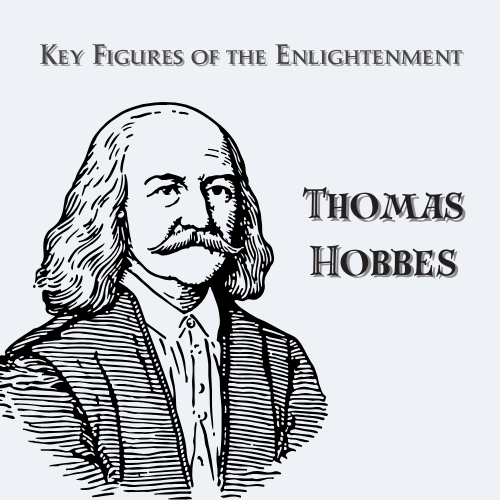
Thomas Hobbes
Share
Thomas Hobbes famously said he was born “twin to Fear.” Why? Because his mother went into labor in 1588, the very year England expected an invasion from the mighty Spanish Armada. That atmosphere of danger shaped Hobbes’s lifelong fascination with conflict, safety, and strong government. He was born in April, 1588 in Westport (now part of Malmesbury), England. His father was a rather fiery village vicar who disappeared after a brawl, so Thomas was raised mainly by an uncle who could afford a good education.
School Days and University Life
Hobbes’s sharp mind earned him a scholarship to Magdalen Hall, Oxford (age 14!). At Oxford he devoured the classics—Homer, Plato, and especially Aristotle—but he grew impatient with endless arguments that seemed to go nowhere. He loved clear reasoning, mathematics, and the brand-new science of his day.
After graduating, Hobbes became tutor and companion to the wealthy Cavendish family. This job let him travel across Europe, meet great scientists like Galileo Galilei, and study languages, geometry, and politics. These journeys turned him from a curious scholar into a bold philosopher.
Hobbes’s Big Ideas (and a Famous Monster Book)
Hobbes poured his thoughts into a dramatic book called Leviathan (1651). He named it after a sea monster to symbolize a powerful state that could keep people safe. Here are his main ideas:
What are people like deep down? In a natural “state of nature,” everyone competes for survival.
What would life be like without government? “Solitary, poor, nasty, brutish, and short.”
How can we escape that chaos? By making a social contract: everybody gives up some freedom to a ruler who protects them.
Who should rule? A strong sovereign (king, parliament, or council) with real power. Hobbes didn’t care if the ruler was royal or elected—as long as they kept the peace.
How Hobbes Shaped the World
Kick-starting Social-Contract Thinking: Later philosophers built on Hobbes’s idea that societies are formed by agreements among people.
A Founding Piece of Modern Political Science: Hobbes treated politics like science. By asking, “If all humans want safety and power, what follows logically?” he set the stage for today’s studies of government and human behavior.
Influence on Legal Ideas: Courts and constitutions still wrestle with his basic puzzle: How far should laws limit personal freedom to maintain security?
Why Hobbes Still Matters to You
Think about online communities, school rules, or even multiplayer video games. Total freedom can quickly turn into bullying or hacking. Hobbes reminds us that rules are bargains: we give up a little freedom (no cheating, no trolling) to gain a lot of safety.
So next time you feel annoyed by a rule, ask Hobbes’s question: “What would happen without it?” His answer, chaos, might make that rule look pretty sensible.
